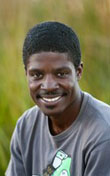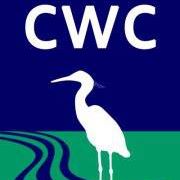 Q1. What is your educational background?
Q1. What is your educational background?
I received my Bachelor’s degree in Environmental Science with a marine science focus from the University of Maryland Eastern Shore. I did my doctoral work at the Virginia Institute of Marine Science, College of William & Mary, where I focused on assessing how hypoxia influenced the function of coastal systems.
Q2. What inspired you to become a scientist?
I was interested in science going back to grade school, but at the time I was not set on a specific discipline. In high
school I became more interested in environmental science, and since I grew up landlocked and playing in the adjacent forests I was naturally interested in terrestrial science. In 11th grade I participated in an ecology explorers venture studying salamanders and though it the most boring thing ever. I quickly decided to dump terrestrial science for marine sciene. I was still unsure if I really wanted to be a marine scientist, but that changed after an internship my freshman year of undergrad at the
Smithsonian Environmental Research Center (SERC). There I had my first taste of ‘real’ science. I was required
to work on the projects in my specific advisors lab, as well as develop my own independent research project. It was
a challenging endeavor, but the expectations placed on me, and freedom to develop an idea as well as implement
it was refreshing. I could not believe they paid people to do what I was doing and was set from that point forward
to achieve an academic career in marine science.
Q3. What is your role as a scientist for CWC?
I am using a benthic observing system to comparatively assess the subtidal adjacent oiled and unoiled marshes to determine if there are any physical or biological differences.
Q4. What do you like the most about doing scientific research?
The creative freedom.
Q5. Can you describe any surprising findings you have come across so far?
Nothing yet.

